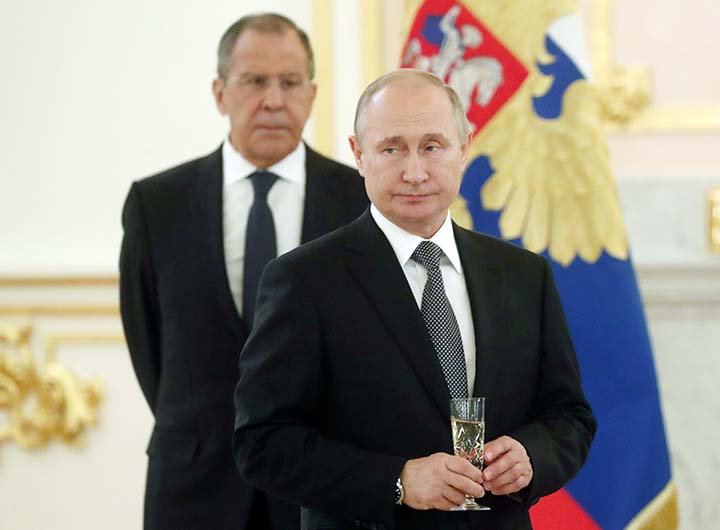
AP, Moscow :
President Vladimir Putin has signed a bill suspending Russia’s participation in a pivotal nuclear arms treaty.
Putin’s decree, released on Wednesday, formalizes Russia’s departure from the 1987 Intermediate-Range Nuclear Forces treaty with the United States following Washington’s withdrawal from the pact.
The U.S. gave notice of its intention to withdraw from the INF in February, setting the stage for it to terminate in six months unless Moscow returns to compliance. Russia has denied any breaches, and accused the U.S. of violating the pact. Moscow followed Washington’s example in February, also suspending its obligations under the treaty.
The INF treaty, signed by U.S. President Ronald Reagan and Soviet leader Mikhail Gorbachev, banned production, testing and deployment of land-based cruise and ballistic missiles with a range of 500 to 5,500 kilometers (310 to 3,410 miles).
The intermediate-range weapons were seen as particularly destabilizing as they take a shorter time to reach their targets compared to the intercontinental ballistic missiles. That would leave practically no time for decision-makers, raising the likelihood of a global nuclear conflict over a false launch warning.
Putin has vowed that Russia will not be the first to deploy new intermediate-range missiles and warned the U.S. against deploying new missiles in Europe, saying that Russia will retaliate by fielding new fast weapons that will take just as little time to reach their targets.
Donald Trump’s administration gave notice in February of its intention to pull out on 2 August, citing Moscow’s development of a missile that was in breach of the pact.
Russia has denied any violations and accused the US of breaking the accord.
In a tit-for-tat response, the Kremlin followed Washington in announcing in February it would also suspend its INF treaty obligations
The pact, signed by US president Ronald Reagan and Soviet leader Mikhail Gorbachev, banned the production, testing and deployment of land-based cruise and ballistic missiles with a range of 310 to 3,410 miles.
The intermediate-range weapons were seen as particularly destabilising as they take a short time to reach their targets compared to the intercontinental ballistic missiles.
That would leave practically no time for decision-makers to gauge how to respond, raising the likelihood of a global nuclear conflict over a false launch warning.
Mr Gorbachev has said it was “mistake” for Mr Trump to withdraw from the treaty, telling Russia’s Interfax news agency last year: “Under no circumstances should we tear up old disarmament agreements … Do they really not understand in Washington what this could lead to?,””

